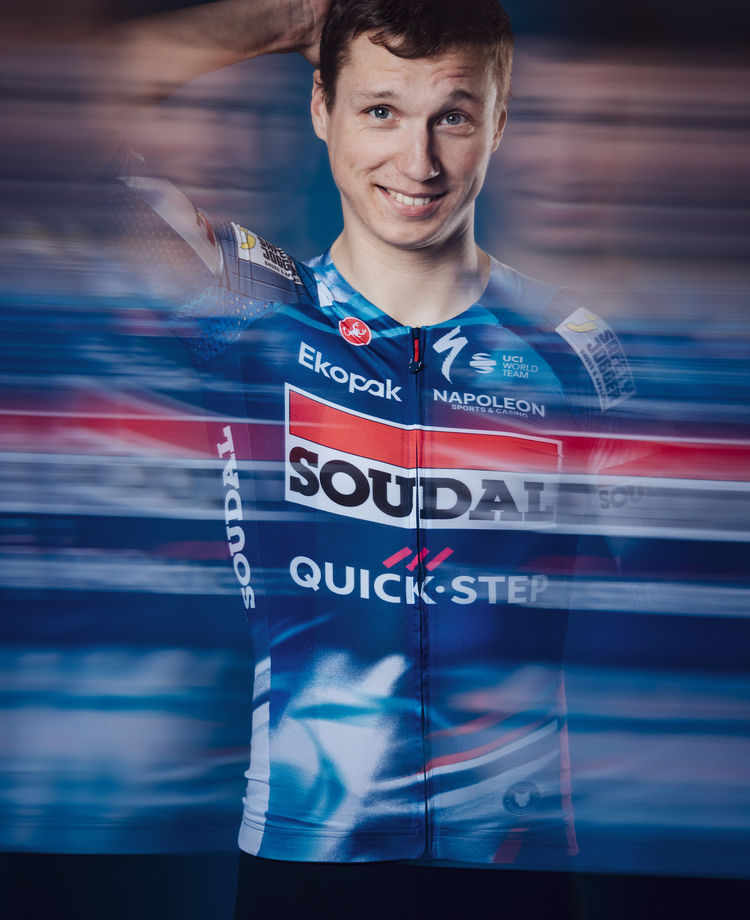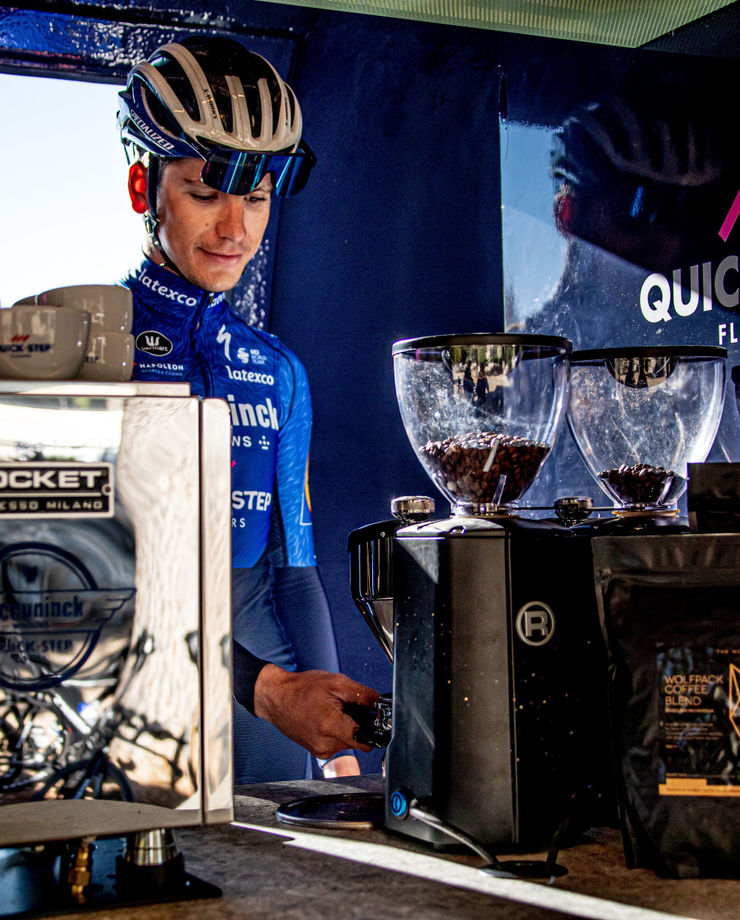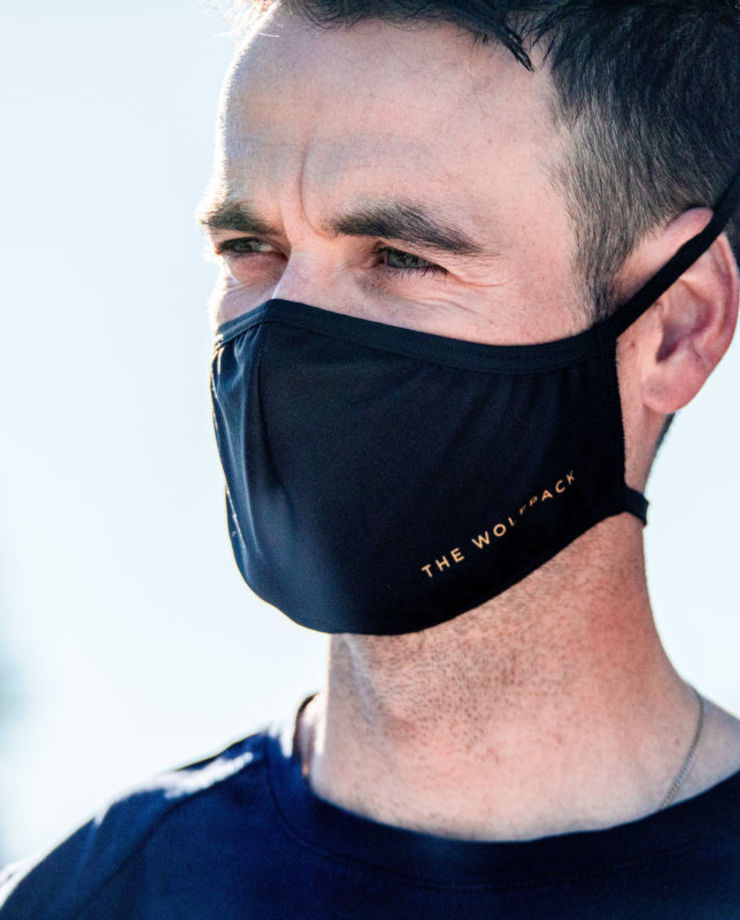In the second part of this exclusive interview for the Wolfpack community, Mauri and Wim continue their conversation about the former’s results on the U23 calendar, his goals and hopes for the first years in the pro ranks and his impressions after the first weeks with Deceuninck – Quick-Step.
“Herbeumont is where I realized climbing might be something for me”
It’s striking that you are two completely different types of riders.
Mauri: “Yes, but I’ve slowly grown into my role, or specialty. At the juniors I didn’t feel I was a real climber. Sure, I did well in the tougher kermesses, but the real turning point has been the Herbeumont hill climbing race as a first-year junior in 2016. That’s where I realized climbing might be something for me. It was the first time I raced in the Ardennes. After that day I started looking for the tougher races on the circuit.”
Only problem: there are no mountains in Belgium.
Mauri: “But you don’t necessarily need the mountains to suffer. You need them to race uphill, yes. But you can perfectly train on the flat.”
Wim: “But don’t put him on the start list of the Schaal Sels. That won’t work.”
So will you further specialize as a climber?
Mauri: “I’ll never become a classics rider, I am too much of a lightweight for that.”
Wim: “60 kilos on those cobblestones ... You have to be more robust for that kind of work.”
Mauri: “Especially in the spring, with those weather conditions. Longer climbs should suit me better.”
Wim: “We will see that now. There are many riders that can climb on the World Tour. Admittedly, I didn’t see it coming what he did last year at the Giro della Valle d’Aosta, which he won. A week earlier he’d also won a race in the Pyrenees, over the Soulor and Aubisque cols. He had a gap of over seven minutes.”
Mauri: “Those races don’t lie.”

Was it a surprise to you that he was such a good climber?
Wim: “I knew he wasn’t bad uphill, but winning such races is something else. There’s only one who wins! It also got harder and harder, because they knew who to watch out for.”
You were doing so well. Did you have to raise your ambitions last year at the U23?
Mauri: “It’s a process. It doesn’t happen overnight. It started in Orlen, Poland and in the Course de la Paix: I was always up there in the mix, and finished third in a stage. Then you realize you are doing well, take it to the next step and gain confidence.”
Wim: “And at a certain level you always meet the same guys, the best riders. If they were left with five in the final kilometers, you could easily tell which five.”
If you look at the top fifteen of the Tour de l’Avenir 2019, they are almost all professionals in the World Tour now. Remarkable!
Wim: “Yes, it surprised me too. It was a good age group, but it’s also because of the current view of the teams. That actually started with Remco, who turned professional from the junior category. It happened with guys like Cancellara and Vandenbroucke too, but rarely. With Remco, the teams saw that it was possible to turn pro to the World Tour as a junior and skip the U23 ranks.”
Mauri: “And be successful straight away.”
Mauri, was it the best choice for you to turn pro now? You could have stayed at the U23 category until the end of the year.
Mauri: “Yes, that’s right. But if you get such an opportunity, you shouldn’t let it pass. If you see what situation we are in now… It would have been much more difficult to become a professional after this year. You shouldn't hesitate if you get the chance.”
Wim: “I also didn’t see the point of keeping him at the U23s. Why do that if you can win races like Valle d’Aosta? To win it again? Suppose he did that, people would say ‘no big deal, he also won it last year’. It was the right moment to turn pro.”
Mauri: “I just wanted to finish school and become a professional rider. And now full focus on cycling!”
“It’s a dream come true”
How do you see the near future?
Mauri: “I’ll first have to adjust to the level and the way of racing. I still have to learn a lot, become stronger and watch my colleagues. I’ll listen to them and learn from them. Then things will turn out fine I’m sure.”
How did you feel after that first training camp in Kaster last month?
Mauri: “Good! I can’t complain. I feel great in the team. I didn't really have any problems with the training level. Sure, races are something else, but I’m convinced I’ll adapt quickly.”
Wim: “But they will go full gas now, two hours at an average of 50 km/h. Everyone will be fresh. There are also quite a few riders with an expiring contract who will want to prove themselves.”

Do you feel pressure? Many young riders are doing very well.
Mauri: “No, not really. But I want to prove myself anyway. Every year you have to prove yourself again, at the U23s and at the pros. I have to start from scratch again.”
Wim: “The level of the best U23s in the world is close to that of the pros. They give up a lot for cycling. Those guys already live like a pro. We didn’t know that in my days. Some already have a nutritionist nowadays.”
How do you see Mauri’s career evolve in the coming years?
Wim: “I’ve already talked about it with Patrick Lefevere. I see Mauri becoming a good rider. He will win his races in the mountains, but I don't see a winner in him, rather a domestique for Remco for instance. I may be wrong, that he’ll be better than that. But I have always been a domestique myself. I see him for that role in the Tour, setting the pace in the tough stages.”
Mauri: “I certainly have no problem fulfilling that role, but I don’t think it will be the case in the first few years. It will be mainly following the bunch instead of setting the pace. The future will tell.”
A lot of young riders have been brought to the team. Was this long-term vision a determining factor in Mauri's choice?
Wim: “I’ve always told him to go to a team for which he likes to pack his bags. I don't care about the rest. I know the world of cycling well enough and many former riders who still work in it."
Mauri: “And that’s definitely the case! I agree, the atmosphere within the group has to be good.”
Wim: “You have to be able to have fun with your teammates. The rest will then come naturally. That’s 30 Watts you get for free.”
Mauri: “It’s also an advantage that there are many Belgians at Deceuninck – Quick-Step. You are immediately drawn into the group, you can communicate with everyone. It’s a pleasure and a dream come true. I’ll be happy to pack my bags for the next race with the Wolfpack!”
Photo credit: ©Wout Beel





